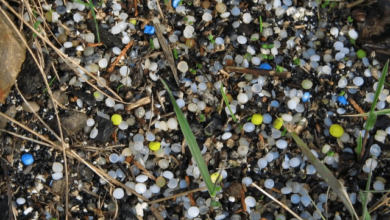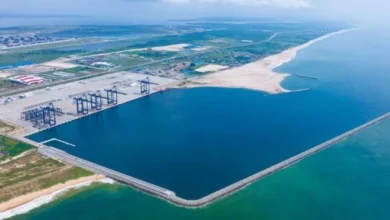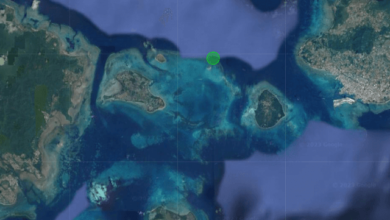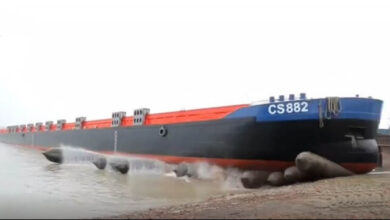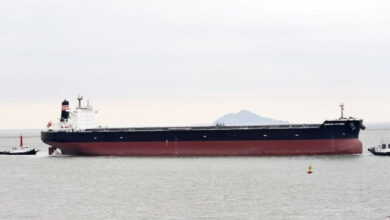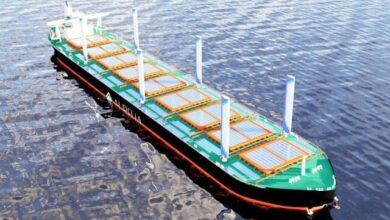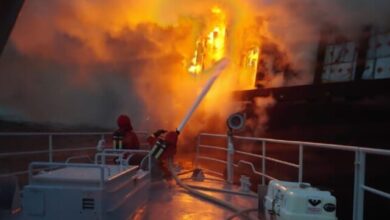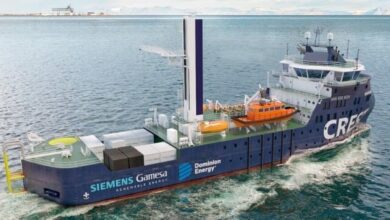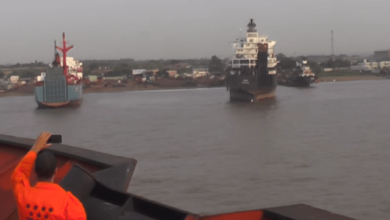
In the past six months there have been at least 40 reported incidents
By Victoria Gill
“I don’t frighten easily and this was terrifying,” skipper David Smith recalls of a late evening in October when his boat was approached by what looked at first like dolphins.
It quickly became apparent that they were much bigger than dolphins. And they were behaving very strangely.
“I looked at this animal – and it was jet black and brilliant white.”
For some two hours, a group of killer whales rammed the underside of the 45ft (13.7m) yacht he was sailing off the coast of Portugal.
“It was continuous,” he says. “I think there were six or seven animals, but it seemed like the juvenile ones – the smaller ones – were most active. They seemed to be going for the rudder, the wheel would just start spinning really fast every time there was an impact.”

David’s job, since he “quit the rat race to sail” back in 2013, is to deliver new boats to where their owners want them moored. In this case, he was part of a team delivering a catamaran from France to Gibraltar.
Orcas really been attacking boats in the Atlantic
An hour before sunset, one of the crew called out.
“He said: ‘It looks like we have some large dolphins,’” recalls David.
The only other encounter he had had with an orca was more than 20 years ago in a Vancouver aquarium, but he was in no doubt that he was looking at a group of killer whales.
“They were right at the back of the boat.”
A sense of curiosity and excitement very quickly turned to fear when one orca disappeared beneath the boat and there was a loud thumping sound from the hull.

The boat was 20 miles (32.2km) off Porto, at least three hours from the Portuguese coast. With their VHF radio out of range, they had to use the satellite phone to contact the coastguard, who advised them to switch off the motor and take down the sails. Be as “uninteresting” as possible, they said.
“So then we were just drifting. But while I was on the phone I could hear them ramming the boat. At one point, one of the larger animals came right to the stern and flipped onto its back – you could see its bright white underside.”
The repeated thudding, unsettling as it was, was not David’s biggest fear. As the wheel spun back and forth, he thought the animals might be about to dislodge the rudder stock – a steering column through the hull of the boat.
“If that fractures, you’re really in trouble,” he says. “I was definitely preparing to ask the Portuguese coastguard to send a helicopter to get us off.”
The encounter is one of at least 40 similar incidents in the area. During the summer of 2020, the strangest of summers for so many of us, a group of killer whales off the coast of Spain and Portugal began to act very strangely indeed.
Accounts of the incidents suggested that the animals were deliberately targeting sailing boats. As David puts it: “They came to us, not the other way around.”
The first reported incident was back in July, the most recent at the end of October.
Behind international headlines about “rogue killer whales”, “orchestrated” orca attacks and the videos shared thousands of times on social media, there is a forensic marine science investigation that is still trying to work out what is driving these complex, intelligent and highly social marine mammals to behave in this way.
‘I just didn’t believe it’
As the light faded, the reverberating thuds from beneath the boat continued. Then David noticed the lights of a fishing boat in the distance.
“We put up the sail, with the idea that if things really went south, we would have another boat to jump onto.”
Finally, after two hours, as unexpectedly as it started, it all went quiet. No sound for five minutes, then nothing for 10. The wheel stopped spinning.
“After about an hour, we were confident they’d left us.”
The crew moved the boat closer to the coast – back within radio range. When they reached Gibraltar to carry out a more thorough check for damage, their boat became another piece of evidence in the ongoing investigation.
Through the narrow Strait of Gibraltar

It’s not unusual to see killer whales in these Atlantic waters. For millennia they have pursued their favourite prey, bluefin tuna, as the fish migrate along the hundreds of miles of Portuguese and Spanish coast, and through the narrow Strait of Gibraltar, to breed in warmer Mediterranean waters.
Humans’ relationship with these orcas though has been on a knife-edge ever since we started fishing for more of that highly prized and highly priced bluefin tuna than appears to have been sustainable.
Some 60 killer whales live in these waters today, that dipped to just 39 back in 2011, a decline that the Spanish conservation organisation CIRCE found was driven by a crash in bluefin tuna stocks. In 2010, international regulators slashed the annual catch that was permitted in the Mediterranean Sea. And, as the bluefin gradually recovered, so did the killer whales.
Their survival remains precarious. This specific population of orcas is listed as critically endangered and protected by law. But the ongoing conservation crisis does not explain why some of them suddenly started to behave so bizarrely and apparently aggressively around boats.
“I just didn’t believe it at all at first,” says Dr Ruth Esteban, a softly spoken marine scientist who chooses her words carefully, not keen to speculate about something as multi-faceted and complex as orca behaviour.
Ruth now works at the Madeira Whale Museum, but she studied this population of orcas for six years – they were the subject of her PhD.
“These killer whales are always curious around boats, they will approach them,” she tells me. “But touching them and causing damage? I just thought people were scared and were misinterpreting what was happening.”

But the reports kept coming.
In July, a sailing vessel had to be towed back to shore after a group of orcas repeatedly hit and damaged its rudder.
In August, a French-flagged vessel radioed the coastguard to say it was “under attack” from killer whales.
Later that same day, a Spanish naval yacht, Mirfak, lost part of its rudder after an encounter with orcas. A video of that incident showed the crew trying to outrun the animals, which appeared to pursue the boat.
In September, a man sailing his boat home to Scotland from Spain suddenly had the wheel spun out of his hands. A killer whale broke the surface at the side of the boat and he says that for 45 minutes, the animals bashed and chewed at the rudder, spinning the boat around.
“It’s getting worse and worse,” says Dr Renaud de Stephanis, another biologist involved in the investigation.
Ruth was previously Renaud’s student. He has been studying these orcas since the 1990s, through his conservation research organisation, CIRCE, which carried out work that helped the orcas garner their officially protected status. CIRCE is now leading the informal investigation into this unusual killer whale behaviour.
BBC




